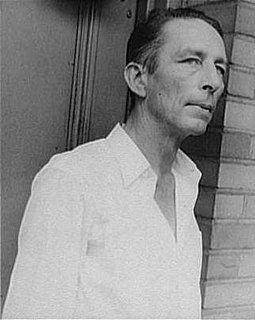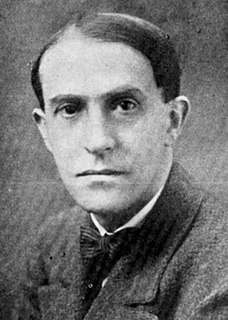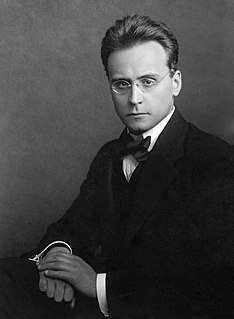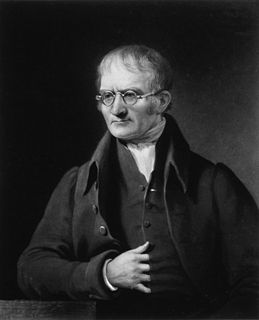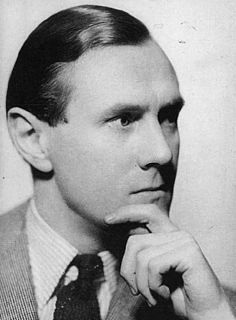A Quote by Max Planck
Modern physics has taught us that the nature of any system cannot be discovered by dividing it into its component parts and studying each part by itself... We must keep our attention fixed on the whole and on the interconnection between the parts. The same is true of our intellectual life. It is impossible to make a clear cut between science, religion, and art. The whole is never equal simply to the sum of its various parts.
Quote Topics
Any
Art
Attention
Between
Cannot
Clear
Component
Cut
Discovered
Dividing
Each
Equal
Fixed
Impossible
Intellectual
Intellectual Life
Interconnection
Itself
Keep
Life
Make
Modern
Modern Physics
Must
Nature
Never
Our
Part
Parts
Physics
Religion
Same
Science
Simply
Studying
Sum
System
Taught
Taught Us
True
Us
Various
Whole
Related Quotes
I believe that the universe is one being, all its parts are different expressions of the same energy... parts of one organic whole.... (This is physics, I believe, as well as religion.) The parts change and pass, or die, people and races and rocks and stars; none of them seems to me important in itself, but only the whole. This whole is in all its parts so beautiful, and is felt by me to be so intensely in earnest, that I am compelled to love it, and to think of it as divine.
There is a strong current in contemporary culture advocating ' holistic ' views as some sort of cure-all... Reductionism implies attention to a lower level while holistic implies attention to higher level. These are intertwined in any satisfactory description: and each entails some loss relative to our cognitive preferences, as well as some gain... there is no whole system without an interconnection of its parts and there is no whole system without an environment.
Unity is surely the indispensable thing if meaning is to exist. Unity, to be very general, is the establishment of the utmost relatedness between all component parts... the aim is to make as clear as possible the relationships between the parts of the unity; in short, to show how one thing leads to another.
But if you do know what is taught by plants and weather, you are in on the gossip and can feel truly at home. The sum of a field's forces [become] what we call very loosely the 'spirit of the place.' To know the spirit of a place is to realize that you are a part of a part and that the whole is made or parts, each of which in a whole. You start with the part you are whole in.
We should scarcely be excused in concluding this essay without calling the reader's attention to the beneficent and wise laws established by the author of nature to provide for the various exigencies of the sublunary creation, and to make the several parts dependent upon each other, so as to form one well-regulated system or whole.
Each of the parts of philosophy is a philosophical whole, a circle rounded and complete in itself. In each of these parts, however, the philosophical Idea is found in a particular specificality or medium. The single circle, because it is a real totality, bursts through the limits imposed by its special medium, and gives rise to a wider circle. The whole of philosophy in this way resembles a circle of circles. The Idea appears in each single circle, but, at the same time, the whole Idea is constituted by the system of these peculiar phases, and each is a necessary member of the organisation.
The progress of science requires the growth of understanding in both directions, downward from the whole to the parts and upward from the parts to the whole. A reductionist philosophy, arbitrarily proclaiming that the growth of understanding must go only in one direction, makes no scientific sense. Indeed, dogmatic philosophical beliefs of any kind have no place in science.
"Pieces" almost always appear 'as parts' in whole processes. ... To sever a "'part" from the organized whole in which it occurs-whether it itself be a subsidiary whole or an "element"-is a very real process usually involving alterations in that "part". Modifications of a part frequently involve changes elsewhere in the whole itself. Nor is the nature of these alterations arbitrary, for they too are determined by whole-conditions.
But ultimately I do not believe that she was only matter. The rest of her must be recycled, too. I believe now that we are greater than the sum of our parts. If you take Alaska's genetic code and you add her life experiences and the relationships she had with people, and then you take the size and shape of her body, you do not get her. There is something else entirely. There is a part of her greater than the sum of her knowable parts. And that part has to go somewhere, because it cannot be destroyed

